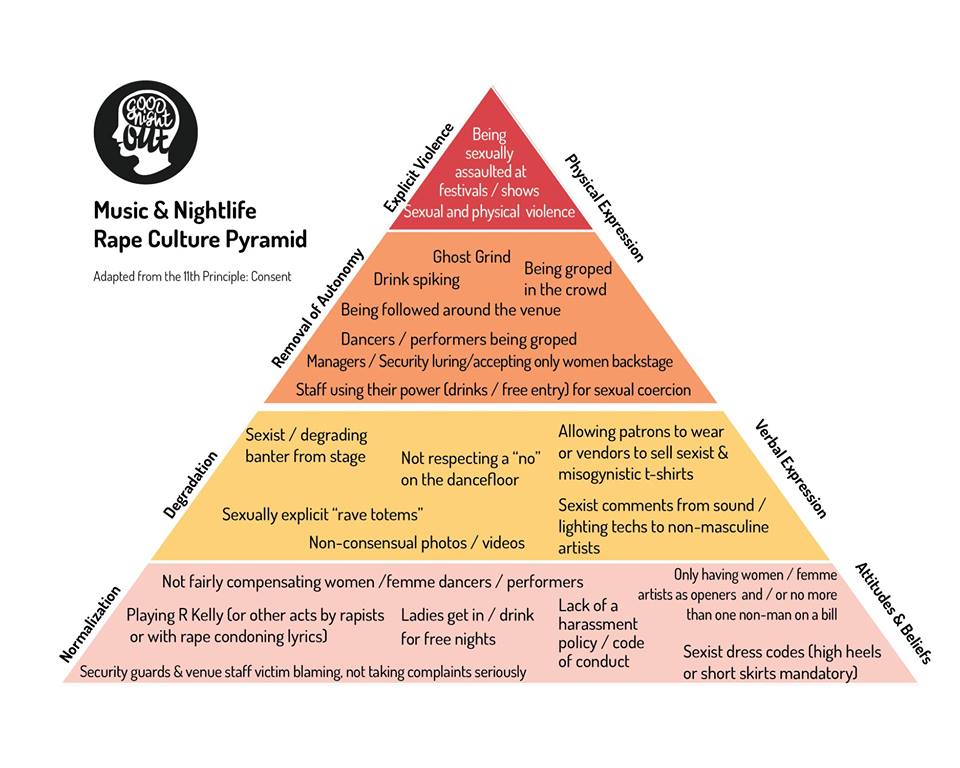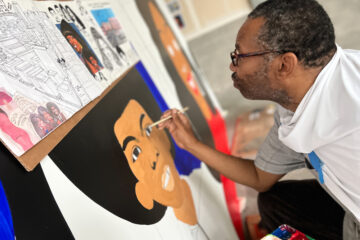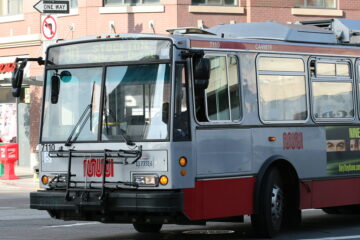Going Out Alone as a Woman in San Francisco
Content Warning: This content may be distressing for some readers, as it includes discussion of sexual violence.
By Elizabeth Dreeson
Is it safe for a pretty-enough, 20-something woman to go to a nightclub by herself?
As a survivor of sexual assault, my PTSD makes it challenging for me to objectively evaluate my safety, and I’ve been gaslighted enough to doubt my intuition. I can feel my brain short circuit when I try to assess situations: What’s the right cutoff time for public transportation at night? Can I walk a few blocks in the Richmond at night? How about Fillmore? What side of the block has more street lights?
Should I just Uber? I should just Uber, but I won’t get dropped off at my address. Why aren’t they following the GPS? Should I bring my drink with me to the bathroom on a date? Is it safe for me to go to a nightclub by myself? I guess I won’t drink. Where’s the exit? Never mind, I’ll just stay home.
These questions suffocate me and impact my ability to immerse myself in the nightlife community. I had to find out for myself: is it all in my head? Or is it exactly as bad as I fear?
My favorite DJ, a bonafide legend synonymous with San Francisco nightlife, was throwing his birthday party at an intimate nightclub in SoMa. None of my usual suspects were available to join me, but I didn’t want to accept a reality where it was unsafe for me to go to a nightclub by myself.

I decided to take reasonable, if not excessive, precautions. I did not choose the outfit I wanted to wear; I chose the outfit that felt safe: a loose dress that covered me from my chest to just above my knees. I checked the venue’s website to see if their club policy included any language around ethics or (un)acceptable behavior. Unsurprisingly, it didn’t. Not very many do. And of course, I decided to abstain from
alcohol, the most commonly used drug in drug-facilitated sexual assault.
When I arrived, I introduced myself to the bouncer, told him I was there alone, and asked him what to do if someone were to make me feel uncomfortable or unsafe. He told me that I can’t miss the security guards inside, or that I could come straight to him.
I instantly felt at ease.
I did a lap around the dance floor but couldn’t quite tell who the security guards were. I decided to check my coat and ask the person running it the same question. One would hope that every staff member would have the same response. And he did. He told me that the security guards were stationed towards the back of the dance floor, but that I could come directly to him. I felt confident that I had done all I could to set myself up for success and that I had the staff’s support if I felt unsafe – a critical part of nightlife safety.
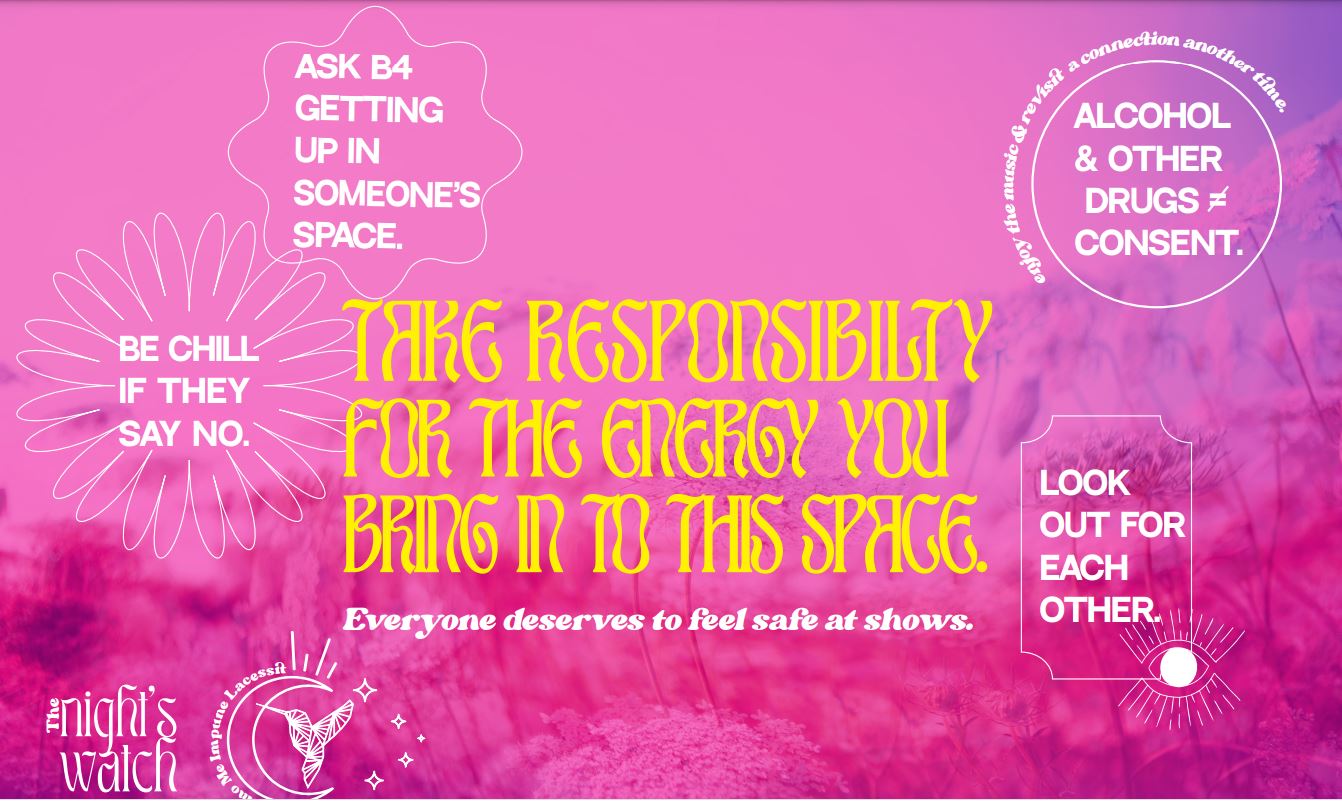
Image by @staysee.marie
I went off to enjoy myself, easily weaving my way through the crowd to the hidden oasis of space directly in front of the DJ booth. I connected with strangers on the dance floor and myself, closing my eyes and fully immersing myself in the music. I felt relieved and encouraged those first few hours. Maybe it was all in my head after all.
Since I was already up front, I went to the part of the bar closest to the DJ booth to get some water. I noticed a very drunk man who could barely keep his eyes open or stand up straight. With my back turned to the crowd as I waited for the bartender’s attention, I felt a pair of hands around my rib cage.
I whipped around, and the drunk man immediately apologized, clearly aware that his behavior was inappropriate.
“Don’t fucking do that again.” I told him.
“I won’t,” he replied.
Even though I had advocated for myself, I wanted to see what the staff’s response would be. This was a good example of problematic behavior that has been normalized, making it the perfect test for my unsolicited safety audit.
I looked around for a security guard but was too deep in the crowd. Even though I had been told to go to a security guard, the closest staff member was the bartender, and I was optimistic that his response would be supportive like the others. If I left to go find a security guard, I would lose track of the man that groped me.
“Hey, the guy behind me is getting a little handsy. Can you help me get someone to keep an eye on him?” I asked.
“That’s not my problem, I can’t help you with that. Go get a security guard,” he said curtly as he shooed me away and moved on to the next customer. Now what?
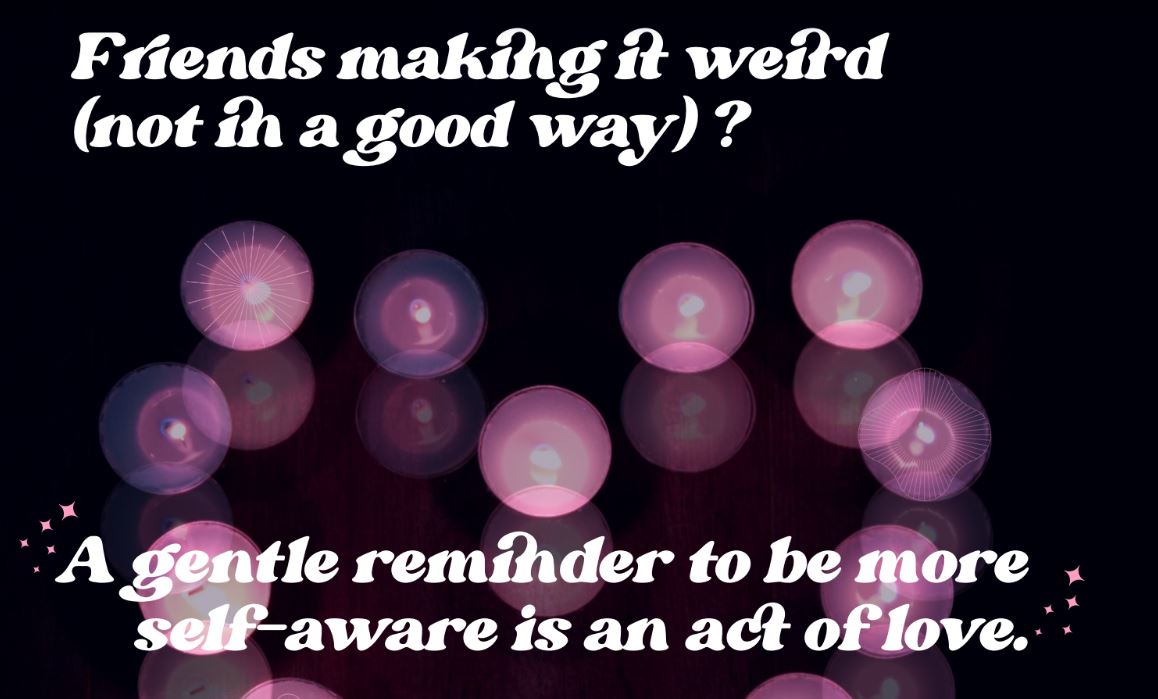
Image by @staysee.marie
I returned to coat check and asked him exactly that. His face fell and he expressed his condolences and condemned the bartender’s response, assuring me he would take care of it without sharing details. I couldn’t help but be curious about how the bouncer would respond, so I asked him the same question: “What do I do when I’m dismissed by a staff member after reporting an instance of sexual harassment?”
“None of those guys give a fuck, you have to come to security.” They replied.
“What do you mean they don’t give a fuck? Your staff doesn’t give a fuck about my safety? That doesn’t seem right.” I said.
The woman working the box office called me over, “What happened?”
My problem was no longer the man who groped me. I responded to him myself. My problem was the staff’s disorganized and disrespectful response to a disclosure of sexual harassment. She cut me off twice before I could express that.
“Was it a staff member?” She asked.
“No.” I answered.
“Who is the fucker?” She asked.
“That’s not the point anymore…”
“What does he look like?” She persisted.
“Can I please finish?” I asked through tears, flustered with having to explain myself for the fourth time.
“Do you know how devastating it is to be treated this way? Do you know how disappointing it is to hear from your staff that your bartenders don’t give a fuck? I want to be here. I paid to be here, and that makes my safety the problem and priority of every single one of your staff members. The lack of a unified response signifies an enormous issue, and your venue needs a policy to address and respond to instances of sexual harassment with compassion and respect.”
“The staff should give a fuck. They do give a fuck.”
“Prove it.”
She led me to the general manager’s office to explain my situation for a fifth time, and I expanded upon my extemporaneous lecture: “You need to proactively define a no-tolerance policy towards sexual violence that is visible to your patrons. I should be able to receive help from any staff member: the bartenders, the people who clear empty cups, the guy at coat check, and the security guards. Survivors of sexual violence deserve dignity and respect. I can advocate for myself, but not everyone can, and you need to do this for the ones that can’t.”
The venue’s general manager put his number in my phone and had me text him with mine, assuring me that he was committed to making the club safer. He has yet to follow up with me after I reached out four times over the course of a month.
Equally out of obstinance and my reverence for house music, I went back to enjoy the rest of the night. I was thrilled to share space with two respectable older gentlemen who kept their hands to themselves and shared my reverence.
One negative experience doesn’t need to ruin an entire night, but it certainly can – especially when it’s compounded by a disorganized response across the board from the staff. Response is critical to recovery.
I had to talk to five different staff members to address a singular incident. Each had a different response, and the situation was not resolved. It is exhausting to be this aware of potential threats with limited infrastructure (at best) to challenge them. The precautions I took were excessive, if not hyperbolic, yet ultimately insufficient.
I methodically took these precautions to eliminate the possibility of victim blaming and to unequivocally demonstrate that it is disproportionally men who choose to sexually harass women. It is not the way she dresses, her sobriety, or whether she reports the incident.
I am not suggesting that the problem originates from the venue, the performer, or the city. The problem is rape culture, and rape culture is the status quo. The status quo and its systemic issues will insidiously penetrate venues that exist within it unless an intentional infrastructure is in place to challenge it. What I am suggesting is that not only are venues in a unique position to challenge rape culture, but also that they have a moral responsibility to do so. Certainly, the price of admission should entitle patrons to a safe space more than it entitles men to sexually harass them with impunity. Being reactive instead of proactive is complicity with rape culture. And acknowledgment without dedication to challenging the problem is active participation in rape culture.
If you manage a venue, train your staff to recognize and challenge rape culture with a policy that is visible to patrons and a unified response rooted in compassion, respect and fundamental belief for survivors of sexual violence who choose to report it. This training is available for free and only requires an investment of time. If you are a performer, add a safety addendum to your rider that requires the venues you perform at to take measures to proactively address sexual violence. But policy is only as good as the culture it exists in. If you are a patron, learn how to be an active bystander and model a better standard of behavior.
Let’s revisit the original question: Is it all in my head or is it exactly as bad as I fear?
You tell me.
If you are needing support in relation to sexual violence, please reach out to BAWAR’s 24-hour Sexual Assault Crisis Hotline (510) 845-7273
For more resources, check out the “Healing is Power” collaborative campaign between @goodnightout_vancouver, @dancesafe_, and @mimipagemusic.



